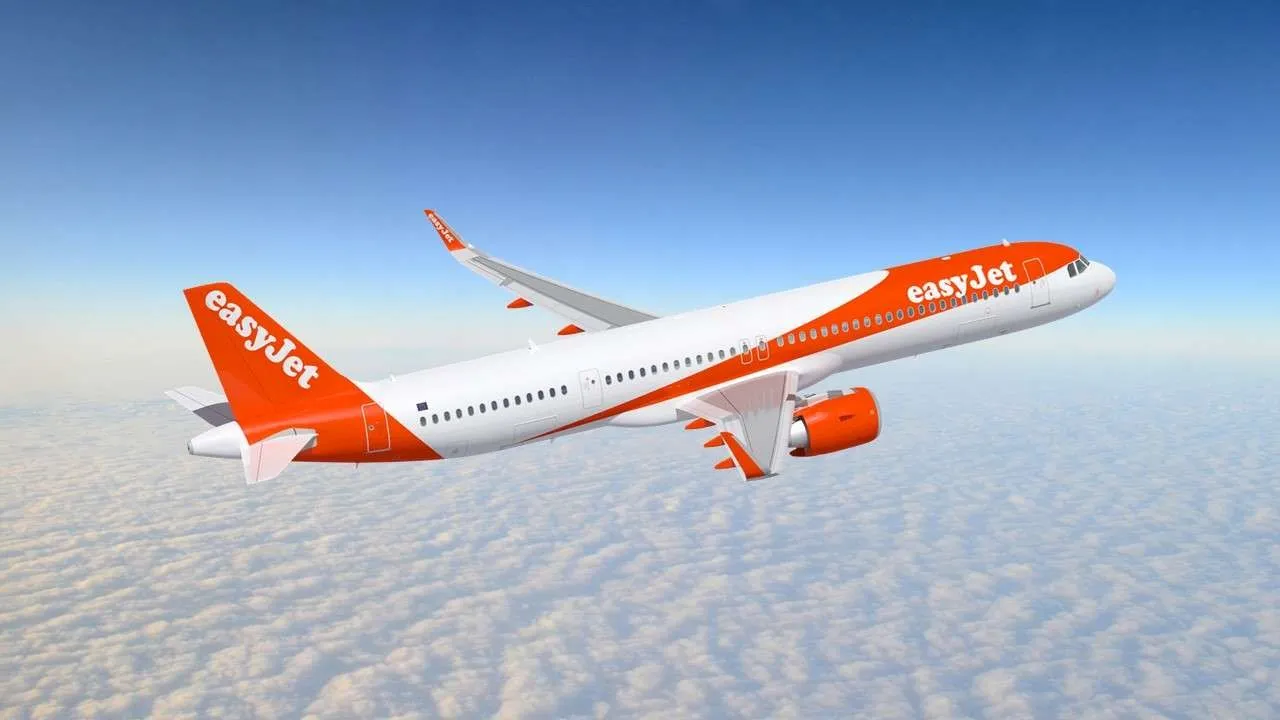
easyJet Orders Another 157 A320neo Aircraft
Dec 19, 2023

easyJet has placed a substantial order for an additional 157 A320neo aircraft from Airbus, further expanding its fleet to enhance operational efficiency and meet growing demand. This strategic move aligns with the airline's commitment to sustainability, as the A320neo series is known for its fuel efficiency and reduced carbon emissions. The new aircraft are expected to support easyJet's plans for network expansion and improved customer service. With this order, easyJet aims to strengthen its position in the competitive European aviation market while adhering to its environmental goals. The delivery timeline for these aircraft is anticipated to span several years.
In a significant move that underscores its commitment to fleet modernization and operational efficiency, easyJet has placed an order for an additional 157 A320neo aircraft. This decision not only reflects the airline's growth strategy but also highlights its focus on sustainability and environmental responsibility. The A320neo, known for its fuel efficiency and lower emissions, aligns perfectly with easyJet's goals of minimizing its carbon footprint while enhancing passenger experience.
Understanding the A320neo Aircraft
The Airbus A320neo (New Engine Option) is a game-changer in the aviation industry. It offers several advantages over its predecessors, making it an ideal choice for airlines like easyJet. Here are some key features of the A320neo:
- Advanced aerodynamics that reduce fuel consumption by up to 15%.
- New engine options that provide higher efficiency and lower noise levels.
- Enhanced passenger comfort through larger windows and improved cabin layout.
These features contribute to the overall performance of the aircraft, making it a cost-effective solution for airlines looking to expand their fleets while adhering to stringent environmental regulations.
The Strategic Impact of easyJet's Order
By ordering an additional 157 A320neo aircraft, easyJet is positioning itself strategically within the competitive low-cost airline market. This expansion is expected to enhance their operational capacity, allowing for more routes and increased frequency on existing ones. The decision is particularly significant for several reasons:
- Fleet Modernization: The new aircraft will replace older models, ensuring a more reliable and efficient fleet.
- Cost Efficiency: With lower fuel consumption and maintenance costs, easyJet can maintain competitive pricing while improving profitability.
- Environmental Responsibility: The A320neo's reduced emissions support easyJet's commitment to sustainability, appealing to eco-conscious travelers.
Market Trends and easyJet's Position
The aviation industry is experiencing a shift towards more sustainable practices, and easyJet’s decision to order 157 A320neo aircraft aligns perfectly with this trend. As the demand for air travel continues to rebound post-pandemic, airlines are focusing on fleet efficiency to cater to a growing customer base. With this order, easyJet enhances its position as a leader in the low-cost segment, ready to capture market share in an increasingly competitive environment.
Financial Implications of the Order
The financial implications of easyJet’s order for 157 A320neo aircraft are substantial. While the initial capital outlay is significant, the long-term savings associated with fuel efficiency and maintenance can lead to improved profit margins. Here’s a simple breakdown of the potential financial impact:
| Category | Estimated Savings |
|---|---|
| Fuel Costs per Flight | 15% Reduction |
| Maintenance Costs | 10% Reduction |
| Operational Efficiency | Increased by 20% |
These savings will play a crucial role in easyJet's ability to offer competitive fares while maintaining profitability, thus ensuring long-term sustainability.
The Future of easyJet and Sustainable Aviation
As easyJet moves forward with its order of 157 A320neo aircraft, it is also reinforcing its commitment to sustainable aviation. The airline aims to achieve net-zero carbon emissions by 2050, and this fleet expansion is a critical step toward that goal. By investing in modern, fuel-efficient aircraft, easyJet is not only enhancing its service offerings but also contributing positively to the environment.
Conclusion
The decision by easyJet to order another 157 A320neo aircraft is a strategic move that promises to enhance operational efficiency, reduce costs, and support sustainability initiatives. As the airline industry continues to evolve, easyJet is well-positioned to lead in the low-cost segment while prioritizing environmental responsibility. This order not only signifies growth but also represents a commitment to a greener future in aviation.
Related Articles

Explore Thailand: The Best Islands to Visit for Paradise, Adventure, and Relaxation

The Ultimate Guide to the Best Islands in Thailand for Your Next Getaway

Do babies need passports? How to get a passport for a newborn

How to get a U.S. passport fast: here’s how to expedite the process

What is Mobile Passport Control: 5 reasons why you should use it

SENTRI vs. Global Entry: A detailed guide

Do you need a passport to go to the Bahamas? Let’s find out

Do you need a passport to go to Mexico? A detailed guide

Do you need a passport to go to Canada? We got the answer

Do You Need a Passport for a Cruise: An Essential Travel Guide

Booster Seat Requirements: All the Rules to Follow in Your Rental Car

What Are the World’s Most Powerful Passports, and How Does Yours Rank?

How to Take a Passport Photo at Home: A Helpful Guide

You've got to have heart! Southwest's new livery

Your opinion: Should water be free on low cost carriers?

Young women bolder than guys as solo travellers
